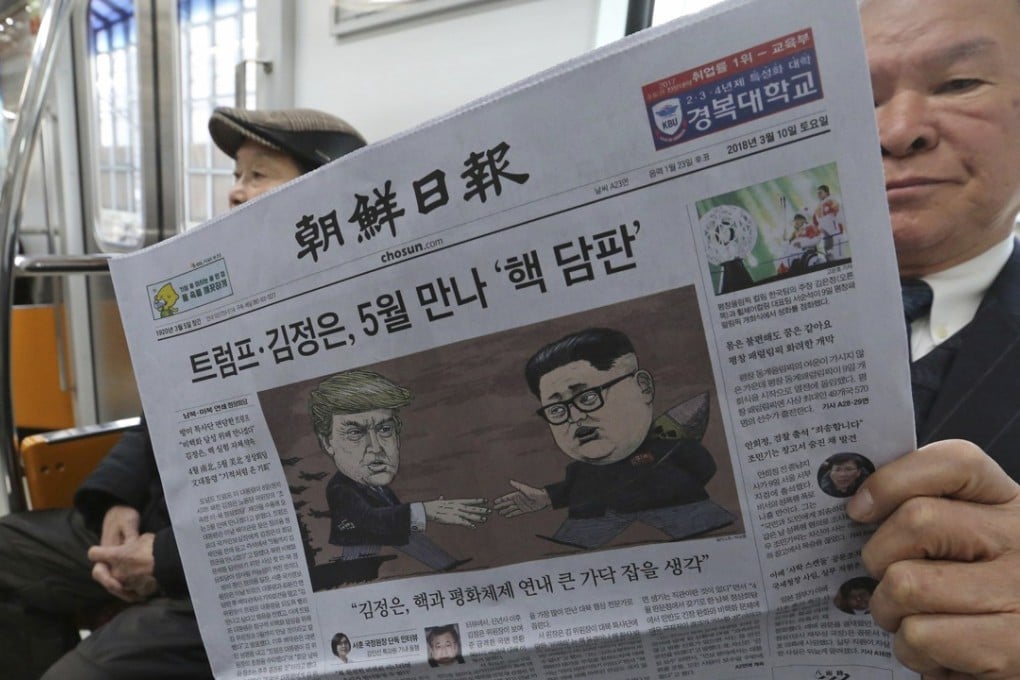Inside Out | South Korea’s Moon Jae-in: the master tactician who could be bringing Trump and Kim to the summit table
[Moon’s election] ‘scrambles the geopolitics over North Korea’s nuclear arsenal … The Trump administration now faces the prospect of a critical ally breaking ranks and adopting a more conciliatory approach’ – New York Times

If anything comes of the remarkable agreement by Donald Trump to meet with North Korea’s Kim Jong-un some time in May, it will be to Trump’s eternal credit.
But perhaps more than anything, it will be due to the unwavering lifetime vision and unconventional tactics of Moon Jae-in, the 65-year-old human rights lawyer who became South Korean’s Democratic Party president less than a year ago.
So much has happened since the slanging matches between Trump and Kim from September last year, when Kim called Trump “a mentally deranged dotard”, and Trump passed Kim off as “little rocket man”, boasting he had a bigger and more powerful nuclear button.
And almost all of the change is due to President Moon.
Many commentators have over the past few days emphasised the huge risks now being taken by both Presidents Moon and Trump, if the initiative to extend an olive branch to Pyongyang backfires.
But at least it has broken the directionless “Groundhog Day” diplomacy of past decades. It might achieve nothing new, but at least it breaks with the mind-numbingly predictable stalemate.
And before we start calling for a Nobel Peace Prize for Trump, let’s recall carefully the transformative role played in the past month by Moon, the son of North Korean refugees, who has spent most of his political life campaigning for eventual reunification of Korea.
